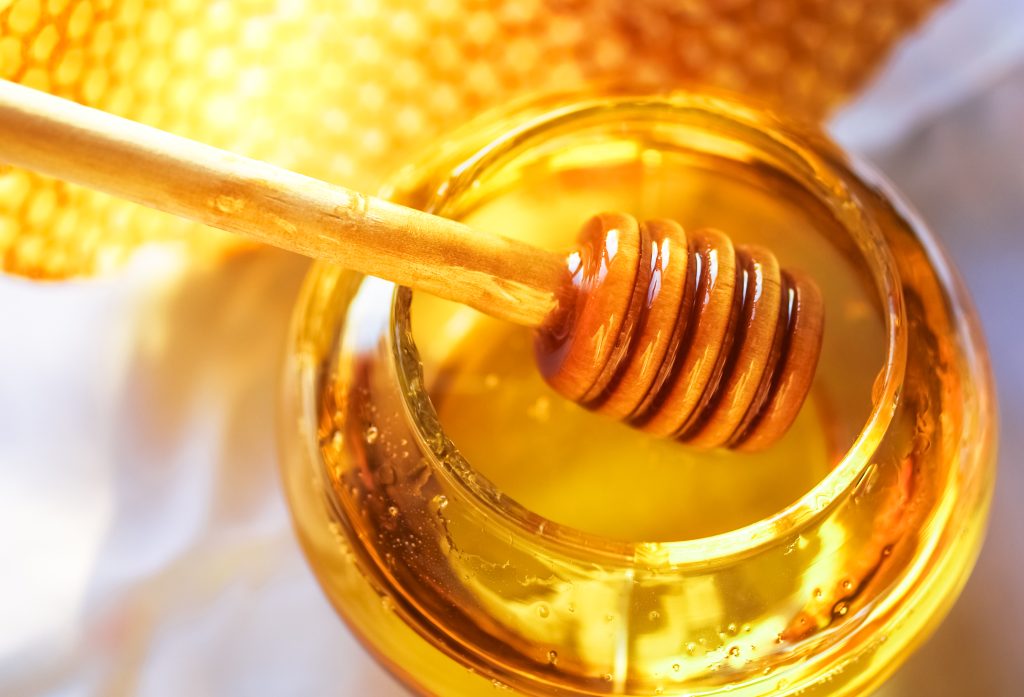Honey is not only a delicious sweetener but also a natural product with numerous health benefits and culinary uses. This article provides essential knowledge about honey, exploring its nutritional properties, uses, and the reasons it has been cherished throughout history.
What is Honey?

It varies in flavor, color, and aroma depending on the floral source and processing methods. Raw honey, which is minimally processed, retains more of its natural nutrients and enzymes compared to processed honey.
Nutritional Benefits of Honey
1. Natural Sweetener
- Lower Glycemic Index: This makes it a better option for sweetening foods and beverages.
2. Rich in Antioxidants
- Antioxidant Properties: Honey contains a variety of antioxidants, include flavonoid and phenolic acids, which help combat oxidative stress and may reduce the risk of chronic diseases.
3. Antimicrobial Properties
- Natural Antibiotic: Honey has natural anti microbial properties, making it effective in treating wounds and burns. It can help prevent infection and promote healing.
4. Soothing Effects
- Cough Relief: Its sooth properties can help alleviate irritation and discomfort.
Culinary Uses of Honey
1. Sweetening Agent
- Baking and Cooking: Honey can be used as a natural sweetener in various recipes, from baked goods to marinades and dressings.
- Beverages: Add honey to tea, smoothies, or cocktails for a touch of sweetness.
2. Natural Preservative
- Food Preservation: Due to its low moisture content and acidity, honey can act as a natural preservative for fruits and other foods.
3. Flavor Enhancer
- Pairing with Foods: Honey pairs well with cheese, yogurt, and fruits, enhancing their flavors and adding a unique sweetness.
Health Considerations
1. Moderation is Key
- Caloric Content: While honey offers health benefits, it is still high in calories and should be consumed in moderation to avoid excessive sugar intake.
2. Allergies
- Potential Allergens: Some individuals may be allergic to honey or specific pollen types. It’s important to be cautious if you have known allergies.
3. Not for Infants
- Botulism Risk: Honey should not be given to infants under one year old due to the risk of botulism, a rare but serious illness caused by bacteria that can thrive in honey.
Conclusion
Honey is a remarkable sweetener that offers more than just a delightful taste. With its numerous health benefits, culinary versatility, and historical significance, honey holds a special place in many cultures around the world. By sharing this knowledge about honey, consumers can appreciate its value and incorporate it wisely into their diets. Whether used as a natural sweetener, a remedy for common ailments, or a flavor enhancer in dishes, honey is truly more than just a treat.
Read also about Tech Empowerment to see how technology can amplify your potential, boost productivity, and create opportunities for innovation in every aspect of life.


